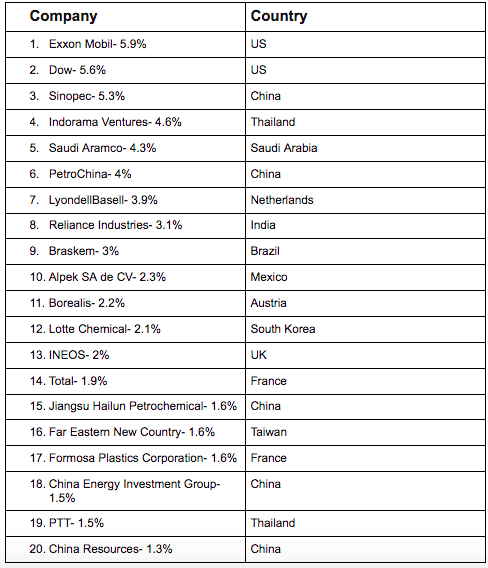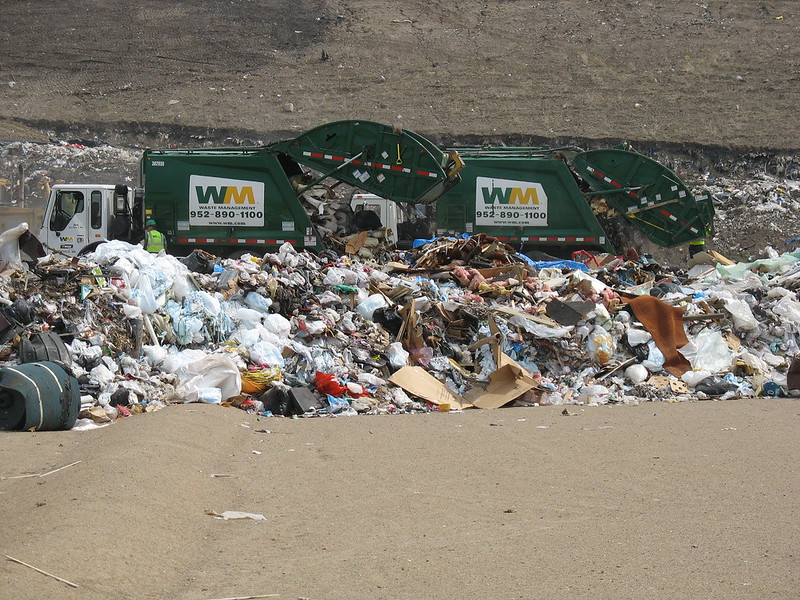New research has revealed that just 20 companies are responsible for producing 55% of all the single-use plastic waste in the world, with ExxonMobil leading the pack. Here are the rest of the companies that are fuelling the global plastic waste crisis.
—
What is Happening?
- The Plastic Waste Makers Index reveals the companies who produce the polymers that become throwaway plastic items, which at the end of their short life span, pollute the oceans or are burned or thrown into landfills.
- The analysis was conducted by the Minderoo Foundation of Australia with partners including Wood Mackenzie, the London School of Economics and Stockholm Environment Institute.
- Among the global businesses responsible for more than half of the world’s plastic packaging waste are both state-owned and multinational corporations, including oil and gas giants and chemical companies.
- 130 million tonnes of single-use plastics were thrown away in 2019.
- ExxonMobil topped the list of the greatest single-use plastic waste polluters in the world, contributing 5.9 million tonnes. The largest chemicals company in the world, US-based Dow, created 5.5m tonnes of plastic waste, while China’s oil and gas enterprise, Sinopec, created 5.3m tonnes.
- In the top 20, 11 of the companies are based in Asia, four in Europe, three in North America, one in Latin America and one in the Middle East. These companies’ plastic production is funded by leading banks, including Barclays, HSBC, Bank of America, Citigroup and JPMorgan Chase. The analysis also showed that Australia generates the most single-use plastic waste on a per capita basis, ahead of the US, South Korea and Britain.
- Below is the list of 20 companies, as well as the country in which they are based:
You might also like: Implications of Rural Tourism in China On the Environment

- Single-use plastics are made almost entirely from fossil fuels and because they are some of the most difficult items to recycle, they worsen the planet’s plastic crisis. Just 10-15% of single-use plastic is recycled globally each year.
- The report says that the global plastic industry has been allowed to operate minimal regulation and limited transparency for decades, which undermines efforts to shift to a circular economy. Just 2% of single-use plastic was made from recycled polymers in 2019.
- In the next five years, global capacity to produce virgin polymers for single-use plastics could grow by more than 30%. By 2050 plastic is expected to account for 5%-10% of greenhouse gas emissions.
The authors of the report said, “An environmental catastrophe beckons: much of the resulting single-use plastic waste will end up as pollution in developing countries with poor waste management systems. The projected rate of growth in the supply of these virgin polymers … will likely keep new, circular models of production and reuse ‘out of the money’ without regulatory stimulus.”
Featured image by: Flickr

















